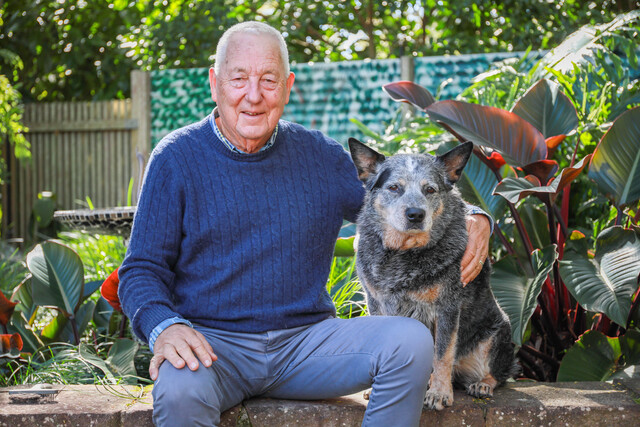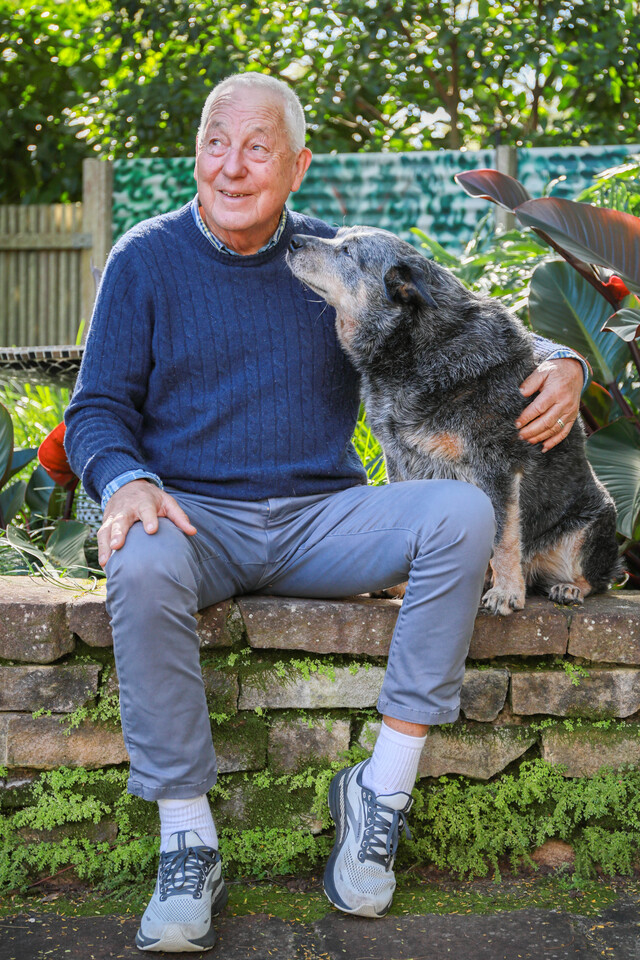Medical staff working with stroke patients are taught one simple phrase – ‘time is brain’.
The quicker a patient can get medical attention, the far better chance they have of avoiding permanent disability.
So, when keen golfer and 80-year-old Noosa resident, Alan Emblin, suffered a stroke outside his home, he needed time on his side.
After returning from an interstate golf trip, Alan suddenly felt dizzy, his legs gave way on the driveway of his Noosa Junction property and so began a chain of events that would dictate how Alan would live the rest of his life.
Fortunately, Alan’s brother and neighbours quickly realised what was happening and called for help.
The ambulance arrived within eight minutes and Alan was rushed to the Sunshine Coast University Hospital for treatment.
A stroke occurs when a blood clot starves the brain of oxygen. The more time that passes, the more brain tissue is lost, leading to irreversible damage that can have varying effects for each patient.
In Alan’s case, it was vital that the clot was removed as quickly as possible, but with no clot retrieval service on the Sunshine Coast, Alan was flown to the Royal Brisbane and Women’s Hospital where doctors performed surgery to remove the 16ml clot.
Alan says surgery happened within three hours of having his stroke, which he is incredible grateful for.
Alan remembers waking up in hospital.
“I was a little bit shaken, I was able to talk, I was able to function properly, my peripheral vision was slightly impaired but otherwise I felt normal.
“The doctor came to see me and explained that she’d retrieved the clot and that they had some difficulty in retrieving it but there’s no doubt I’m incredibly lucky.
“Had I not gotten treatment as quickly as I did, who knows how I’d be today.
“The doctor stayed and chatted for a while and I think she was enjoying the fact that someone with a clot like mine was able to still speak uninhibited, I don’t think it’s an outcome that happens very often.”
Around 1.9 million neurons die every minute a stroke is left untreated with many patients unable to access medical treatment for far longer than the three hours Alan faced.
Hospital charity Wishlist is aiming to raise $600,000 to provide a biplane imaging device which will allow staff to perform clot retrievals like Alan’s here on the Coast, saving countless people from carrying the burden of disability in the future.
Alan was discharged from hospital six days after his stroke and is back at home in Noosa with his wife, Julia, and blue-heeler, Boof.
Although he says his game has slipped a bit, he’s still able to enjoy a round of golf.
“Clearly, strokes are all about about time, it’s about getting the treatment that you need and the clot removed as soon as you can.
“Anything that’s going to accelerate that process is going to be lifesaving – it’ll certainly limit the damage that can be done.”
To support Wishlist and help fund the Biplane Unit for the benefit of stroke patients, make a tax-deductible donation at wishlist.org.au or phone 5202 1777.
How to recognise a stroke:
F – Has their FACE drooped?
A – Can they lift both ARMS?
S – Is their SPEECH slurred and do they understand you?
T – Call 000, TIME is critical.








